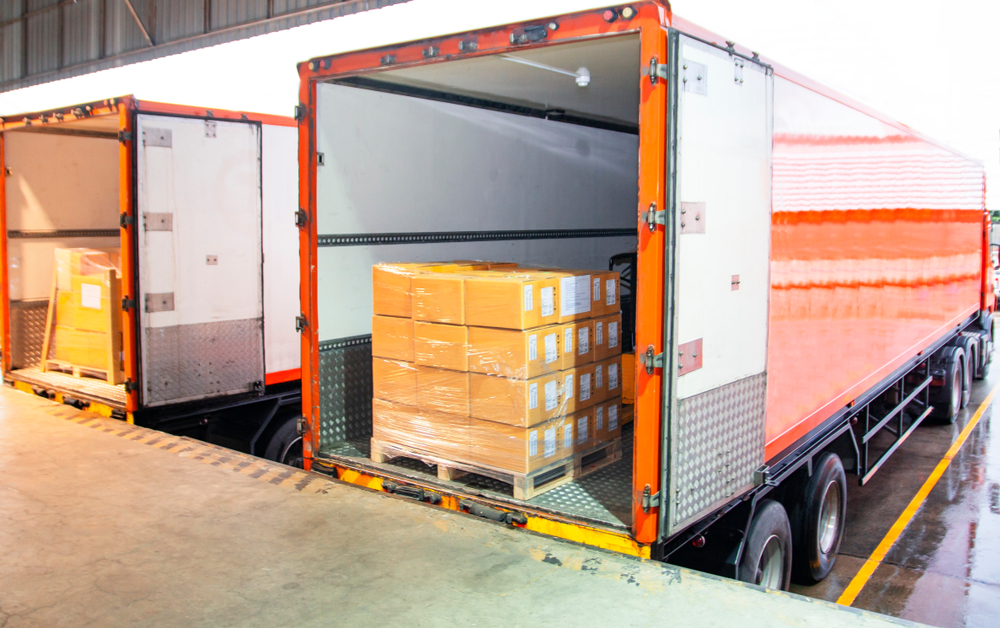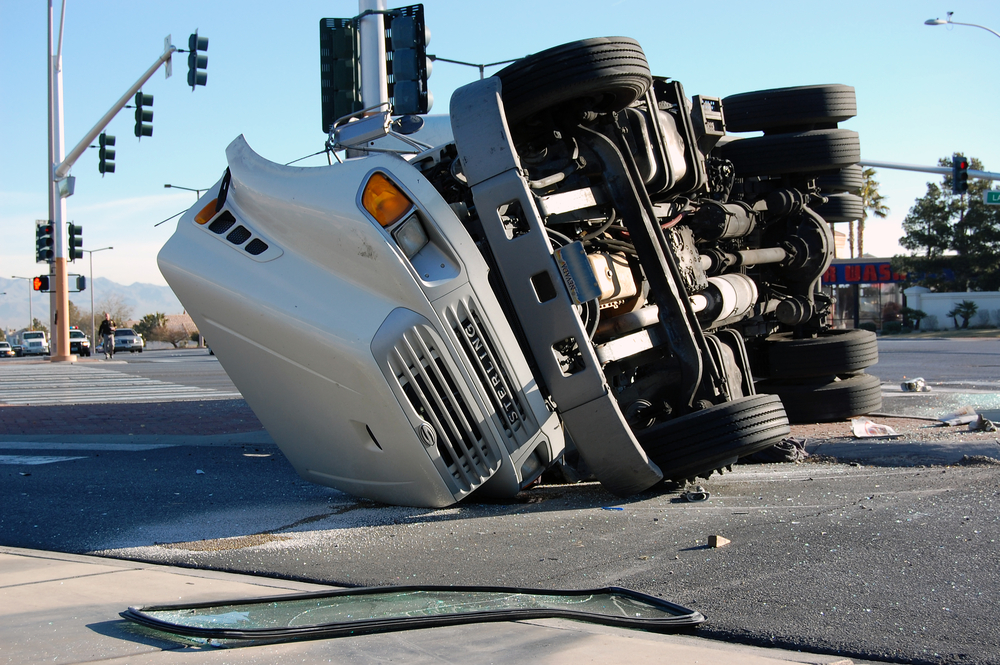Truck accidents often lead to serious injuries and significant damage. Understanding who is responsible is key for those affected to seek compensation.
Below, experienced Philadelphia truck accident lawyers will dive into the key factors that help determine when a trucking company might be held responsible for an accident.
Get A Free Consultation Today!
Negligent Hiring and Training
When discussing the responsibility of trucking companies in the context of road accidents, we must consider how their practices in hiring and training drivers can directly impact safety on our roads.
A trucking company must ensure all its drivers are qualified and understand safety protocols and regulations. This responsibility includes conducting thorough background checks on potential drivers and looking into their driving history for any red flags, such as traffic violations or substance abuse issues. Hiring a driver with a problematic history can significantly increase the risk of accidents.
Beyond the initial hiring process, the company's approach to training is equally important. Proper training ensures that drivers are fully equipped to handle the challenges of the road, from complex traffic situations to managing the physical and mental demands of long-haul trucking.
This training should not be a one-time event but an ongoing process where drivers continuously receive updates on the latest safety practices and regulatory changes. Regular performance monitoring is also vital, as it helps the company identify and address any risky behaviors or gaps in a driver's knowledge before they lead to an accident.
Should a trucking company fail in these responsibilities and an accident occurs. As a result, it can be considered a direct contribution to the conditions that allowed the incident to happen. For example, suppose a driver with a known history of DUI offenses causes an accident but joins the company without proper vetting. In that case, the trucking company can be liable for negligence.
Similarly, suppose a driver causes an accident due to a lack of understanding of safety protocols, a situation that proper training could have mitigated. In that case, the company might also bear the burden of liability.
Understanding the Impact of Federal Regulation Violations on Trucking Company Liability

Federal regulations maintain the safety and integrity of the trucking industry. These rules exist not just to protect the drivers but also to ensure the safety of everyone on the road.
The regulations cover a broad spectrum of operational aspects, from dictating how many hours a driver can be behind the wheel without a break to setting strict guidelines for vehicle maintenance and load weights. These rules aim to minimize the risk of accidents caused by driver fatigue, mechanical failures, or unsafe vehicle conditions.
When trucking companies overlook or deliberately ignore these regulations, they not only endanger lives but also expose themselves to significant legal liability in the event of an accident.
Consider the hours of service regulations, which are in place to prevent driver fatigue—a leading cause of trucking accidents. By enforcing limits on driving hours and mandating rest periods, these rules aim to ensure drivers remain alert and responsive. A trucking company that allows or encourages its drivers to exceed these limits is, in essence, compromising on safety for the sake of operational efficiency or financial gain. If an accident occurs under such circumstances, violating federal regulations can be a factor in establishing the company's liability.
Similarly, regulations concerning vehicle maintenance ensure that trucks are always in safe working condition. Regular maintenance checks are required to identify and fix potential issues like brake malfunctions or tire wear, which can lead to catastrophic accidents if left unaddressed. A company that neglects these maintenance requirements, resulting in an accident attributable to vehicle malfunction, will likely be held responsible for the resulting damages.
The same principle applies to regulations regarding weight limits. Overloaded trucks are more difficult to control and have longer stopping distances, significantly increasing the risk of accidents. Disregarding these weight limits and causing an accident directly links the violation of this regulation to the cause of the incident, further cementing the company's liability.
The Role of Maintenance and Inspections in Trucking Safety
Ensuring that commercial trucks are in top-notch condition through regular maintenance and thorough inspections is not just a best practice—it's a necessity for the safety of everyone on the road. This responsibility falls squarely on the shoulders of trucking companies tasked with the upkeep of their fleet to prevent mechanical failures that can lead to accidents. Even minor mechanical issues can have serious consequences when they involve large commercial vehicles.
Trucking companies must adhere to a strict maintenance schedule, promptly addressing routine upkeep and necessary repairs. This includes checking vital components such as brakes, tires, lights, and engine parts to ensure they meet safety standards. Regular maintenance is crucial for identifying potential issues before they escalate into serious problems. It's about being proactive rather than reactive, preventing accidents through diligence and attention to detail.
When a trucking company neglects this responsibility, the results can be devastating. Consider a scenario where a truck's brake system fails due to poor maintenance. In such a case, the inability to stop or slow down can lead to catastrophic accidents, endangering the lives of the truck driver and other road users.
Similarly, tire blowouts—a common result of inadequate tire maintenance—can cause the driver to lose control, leading to severe accidents. In these instances, the link between mechanical failure and the lack of proper maintenance is direct and undeniable.
If an accident occurs under these circumstances, the trucking company's failure to uphold its maintenance obligations can be considered negligence. This negligence is not merely about cutting corners or saving costs; it's a failure to prioritize safety, with potentially fatal consequences.
Victims of accidents caused by mechanical failures can hold the trucking company accountable with the help of a truck accident attorney, contending that proper maintenance and inspections could have prevented the accident.
Proper Loading Practices in Trucking Safety
Proper loading practices are a cornerstone of trucking safety, ensuring that vehicles are stable and secure throughout their journey. This responsibility, which lies with trucking companies, involves more than just fitting cargo into a trailer. It requires meticulous attention to weight distribution, securing methods, and the condition of securing equipment.
The consequences of neglecting these practices can be severe, leading to accidents that compromise the safety of the driver, the cargo, and all road users.

One of the fundamental aspects of proper loading is adhering to weight limits. Trucks have specific weight capacities designed to maintain vehicle stability and control. Overloading a truck can severely affect its handling, making it more difficult to maneuver and significantly increasing stopping distances.
Additionally, an overloaded vehicle stresses tires and brakes, raising the risk of failure. Trucking companies must ensure that cargo does not exceed these limits and evenly distribute it to prevent issues like tipping or rollover accidents.
Securing the cargo is equally important. Improperly secured loads can shift during transit, affecting the truck's balance and increasing the risk of an accident.
Effectively securing cargo involves using straps, chains, and other securing devices that are in good condition and suitable for transporting cargo. Regular checks and adjustments are necessary to ensure the load remains secure over long distances and in various driving conditions.
The use of defective equipment for loading or securing cargo further exacerbates these risks. Regularly inspect equipment such as straps, chains, and load bars for wear and tear and replace them if found defective. Failure to do so can make the cargo unsecured during transit, leading to potentially disastrous outcomes.
When trucking companies overlook the importance of proper loading practices, they endanger lives and open themselves up to liability in the event of an accident. Negligent loading practices can often pinpoint the cause of accidents involving overloading, cargo shifting, or the failure to secure equipment. In such cases, the company responsible for loading the truck can be held liable for damages resulting from the accident.
This accountability emphasizes the critical nature of proper loading practices within the trucking industry. It serves as a reminder that safety begins before the truck even hits the road, with the careful cargo loading.
Trucking companies must rigorously follow these practices, demonstrating a commitment to safety that protects their assets, employees, and everyone who shares the road with their vehicles.
Monitoring and Supervision in Preventing Truck Accidents
Trucking companies are responsible for ensuring their drivers are initially qualified and continuously monitoring their behavior on the road. This ongoing supervision is important for maintaining high safety standards and compliance with regulations, safeguarding not just the drivers but all road users.
Adequate monitoring involves a comprehensive approach to overseeing drivers' actions, addressing deviations from safe driving practices, and ensuring adherence to traffic laws.
Effective supervision includes GPS tracking and electronic logging devices (ELDs) to monitor driving hours, routes, and behaviors. These tools can help identify patterns that may indicate unsafe practices, such as speeding, hard braking, or deviating from prescribed rest periods. By closely monitoring these aspects of a driver's behavior, trucking companies can intervene before these actions result in accidents.
However, the responsibility extends beyond just tracking and recording data. It involves actively responding to any red flags, such as traffic violations, signs of fatigue, or complaints of reckless behavior. Ignoring these warnings is not just negligent; it's a failure to uphold the duty of care to the public and drivers. For example, suppose a trucking company overlooks repeated instances of speeding by one of their drivers, and this behavior leads to an accident. In that case, the company can be seen complicit in the events that unfolded due to their inaction.
Furthermore, supervision is not solely about punitive measures for non-compliance. It should also include support and education, offering drivers training and feedback to improve their driving habits. Regular safety meetings, performance reviews, and targeted training programs can reinforce the importance of safe driving and regulatory compliance, helping drivers understand their critical role in road safety.
When trucking companies fail to adequately monitor and supervise their drivers, leaving unchecked behaviors that can increase the risk of accidents, they might be liable for any resulting damages. This liability reflects the principle that companies have a role not just in the mechanical upkeep of their vehicles but in the continuous oversight of their operators.
Inadequate monitoring and supervision represent missed opportunities to prevent accidents before they happen. They underscore the importance of proactive measures in identifying and mitigating risks associated with commercial trucking.
Trucking companies must embrace their responsibility for comprehensive supervision as a fundamental aspect of their operations, essential for protecting lives and preventing accidents. This commitment to oversight is a testament to a company's dedication to safety and its respect for the communities it serves.
Vicarious Liability in Trucking Accidents
Vicarious liability is a pivotal legal doctrine in the context of trucking accidents, underscoring trucking companies' accountability for their drivers' actions. This principle asserts that when a truck driver is involved in an accident while performing job-related duties, the employer—namely, the trucking company—can be held responsible for any resulting harm. This concept extends the scope of liability beyond the individual driver to include the company that employs them, recognizing employers' inherent control and influence over their employees' actions.

The rationale behind vicarious liability lies in the relationship between the employer and the employee, where the employer benefits from the employee's work and thus shares responsibility for the risks associated with that work. Companies must train and license their drivers in the trucking industry, ensuring strict adherence to safety regulations and company policies. When drivers are on the road, they act as representatives of their company, and their actions reflect on the company itself.
This legal concept does not require that the trucking company be directly at fault through acts of negligence or oversight. The determination relies on the employment relationship and the fact that the driver was engaged in work-related activities during the accident. For example, suppose a truck driver causes an accident due to fatigue while adhering to a delivery schedule set by their employer. In that case, the company may be held vicariously liable for the damages caused by the accident. This is because the driver was fulfilling their job duties, under the direction and benefit of the employer, at the time the accident occurred.
Vicarious liability provides a path for victims to seek compensation that might not be fully recoverable from the driver alone. It also emphasizes the importance of comprehensive safety programs and trucking companies' strict adherence to regulatory standards. By holding employers accountable for their employees' actions, vicarious liability encourages companies to implement rigorous hiring, training, and supervision processes to minimize the risk of accidents.
Also, this doctrine serves as a reminder of trucking companies' broader responsibilities toward public safety. It highlights the need for a culture of safety that permeates all levels of operation, from top management to individual drivers. In doing so, vicarious liability facilitates justice for victims and promotes safer roads for everyone by incentivizing companies to maintain the highest standards of care in their operations.
Contact a Truck Accident Lawyer After an Accident
Experiencing a truck accident can be deeply distressing, yet knowing when a trucking company might be responsible offers a measure of control and empowerment. If you've suffered injuries in such an incident, securing legal representation from a truck accident lawyer ensures your rights are protected and you receive the compensation you deserve.
A truck accident lawyer can leverage their experience and knowledge to achieve the best possible outcome. Reach out to a truck accident lawyer for the dedicated support you need during this challenging time.
